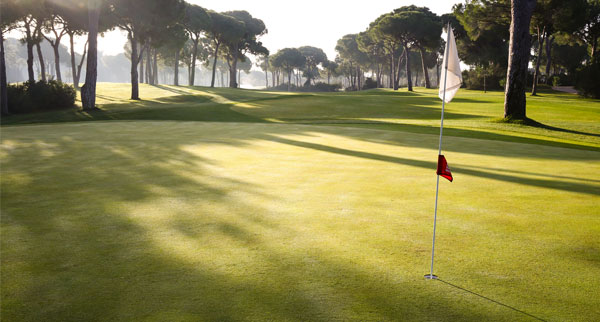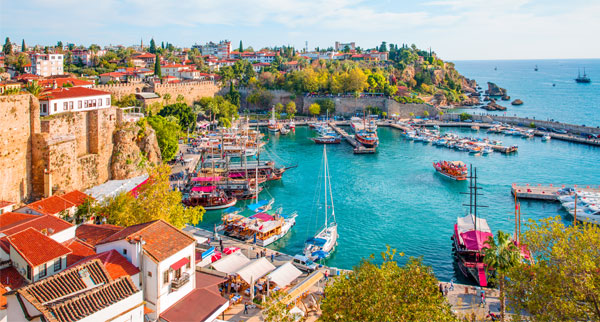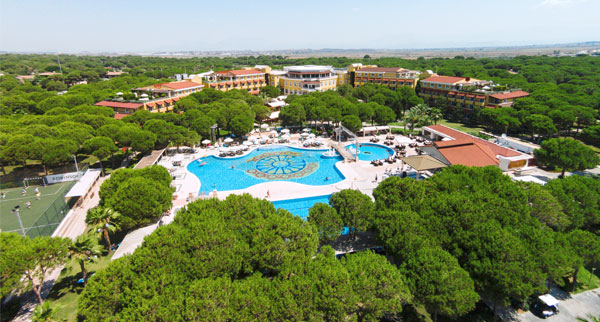There’s ancient history and activities aplenty in the Turkish region of Antalya, finds Ellie Fazan.
Click here to download and save as a PDF.
It’s pomegranate season here and piles of the red fruit – some split in half, revealing their treasures – line the roadside.
The sky is blue and the sun is high, so I rest in the shade of an ancient amphitheatre in the tiny town of Side (pronounced sea-day), slurping a zingy glass of ruby-red pomegranate juice, freshly squeezed with one flex of the seller’s muscles while his gold tooth flashes in the sun.
Side means pomegranate in ancient Greek. The fruit is a symbol of fertility and abundance, which reflects the town’s origin as a wealthy trading port. Situated on the Mediterranean coast in the Antalya region of Turkey, Side straddles a cape with sugar-soft beaches on both sides and an ancient fortified harbour overlooked by the Temple of Apollo.
The town’s pretty stone houses have been converted into bars and restaurants, a characterful counter-point to the string of sporty resorts along its west coast, where guests fill their days with waterskiing, scuba diving, sailing and other entertainment.
But there’s one problem: there’s hardly anyone here. Since the political crisis in
Turkey, there has been a huge decline in tourism, and while consumer confidence is certainly on its way back – package specialist On the Beachreported Turkey as its third-most popular destination during January peaks – it’s nowhere near as busy as it once was.
While the cafes may be quiet and the beaches uncrowded, there’s still a sense of optimism in the air, and we are greeted by friendly locals wherever we go – making this a good time to set your clients’ sights back on Turkey for a good-value summer escape.

Join the club
After a morning exploring Side, we’re picked up by boat and zip west along the coast, wind in our faces, and a handful of paragliders trailing bright colours above us through the sky.
Back at our resort – Robinson’s five-star all-inclusive Club Nobilis, in Belek – an afternoon playing golf on the world-class 18-hole course is in the offing, but I’ve chosen to while the afternoon away with a traditional hammam, or Turkish bath.
Dating back to the early days of the Ottoman Empire, the hammam is a place to purify both body and soul. So in splendid subterranean settings, I am steamed, rubbed, soaped, scrubbed and pummelled. By a stranger. While completely naked. It’s an intense and liberating experience, revealing in more ways than one.
An evening stroll through the hotel gardens, stopping for a freshly made pide – a deliciously light cheese-free Turkish pizza topped with spiced lamb – shows the laid-back nature of life here. We pass a sundowner yoga session on the river bank, guests swinging in hammocks to a soothing backdrop of live music, others dressed up for the night ahead, and hear the thwack of a tennis ball in the distance.
But I walk out along the hotel’s pier and plunge into the bath-warm sea. As the moon rises, a fisherman chugs past, a reminder of the world beyond the resort’s well-manicured facade.
With three pools, a golf course, 12 miles of sandy beach, and activities ranging from sailing to cocktail-making lessons, many guests don’t venture out for their entire stay – but they’d be missing out on the many secrets to discover in the surrounding area.

Local life
The hour-long drive to the town of Antalya passes the spectacular ruined cities of Perge and Aspendos. Carved into the hillside with the mighty Taurus Mountains rolling away into the distance, the amphitheatre in Aspendos is awesome, and one of the best-preserved in the world.
Built in the second century, it was later converted into a coaching inn serving the Silk Road. Stand in front of the arcade at the top and look down: it’s easy to imagine the roar of 7,000 spectators echoing around the arena. Time it right and you could still catch a performance here today – albeit with no blood spilled.
Built into the cliffs above an ancient Roman harbour, the town of Antalya is a buzzy place to spend an afternoon. I look out from the top floor of a local cafe – the kind where only locals go – as a bird pecks at dates in a nearby palm, Turkish flags flutter in the square, boats chug in and out of the harbour, and people go about their daily business.
You could watch local life unfold from up here all afternoon, but the winding cobbled streets of the old town are calling. Here, the Ottoman-era houses have been converted into boutique hotels, and cafes and restaurants are swelling with university students, workers, and tourists.
Over a glass of sweet mint tea in his friends’ coffee shop, our guide Mohammed says: “Everywhere you go you’ll be treated like a friend. Hospitality is part of our culture. From history to natural beauty to beaches, it’s different wherever you go. But always, guests will be welcomed.”

Tried and tested: Robinson Club Nobilis
Club Nobilis is a five-star all-inclusive property on the sparkling Turkish Riviera, in the province of Antalya. There’s direct access to a sandy beach, an 18-hole championship golf course, luxurious spa, indoor and outdoor pools, a variety of water sports – including sailing lessons at extra cost – and a range of wellness activities, alongside a selection of very good restaurants and evening entertainment venues.
There’s no getting around the fact that this Tui-owned brand predominantly attracts a German-speaking clientele, although there are English-language signs everywhere and most staff also speak English. That said, it was a bit of a shock to be the only person in a swimsuit in the spa…
Book it: Prices start at £1,860 in total for two people staying seven nights in a double room in June, on an all-inclusive basis. The cost for a family of four in August during the school holidays starts at £4,780, staying all-inclusive in a family room. Flights and transfers are not included.
robinson.com




